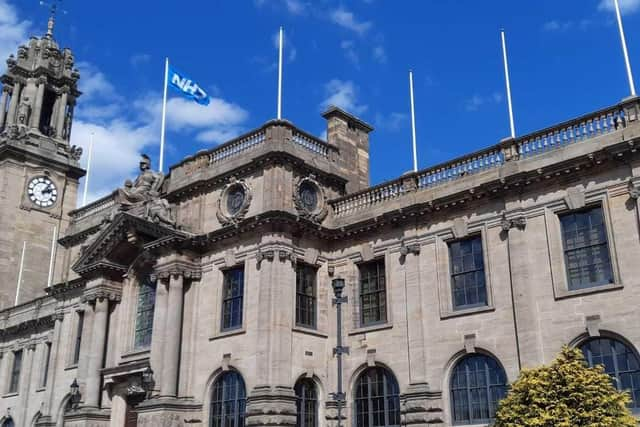Borough chiefs predict ‘difficult choices’ as spending forecasts suggest South Tyneside is heading for a multi-million funding gap
and live on Freeview channel 276
Work has already started on spending plans for the 2023/24 financial year, with bosses predicting “difficult choices” ahead.
Since 2010, the local authority has seen millions of pounds of government funding slashed from its budgets, leading to cuts to some services, increases in council tax and reduced staffing numbers.
Advertisement
Hide AdAdvertisement
Hide AdAnd according to borough’s director of business and resources Stuart Reed added “austerity has not gone away”, with the council needing to spend more money every year to maintain the “same level of service”.


National factors are expected to impact the council’s books going forward, including social care funding reform, as well as the ‘legacy pressures’ for adult social care services following the coronavirus pandemic.
Other pressures include energy costs for council facilities, pay inflation, recruitment and school transport costs for those with special educational needs and disabilities.
However, while pressures on day-to-day revenue spending remain, council chiefs confirmed capital investment into town centres and core infrastructure, such as highways, ICT and vehicles, will continue.
Advertisement
Hide AdAdvertisement
Hide AdAnd despite uncertainty around the council’s future financial position due to inflation, Mr Reed told Tuesday’s (September 6) meeting of the council’s Overview and Scrutiny Coordinating and Call-in Committee the borough had “managed before and will manage in the future”.
Members of the panel, which had requested an earlier start than normal to its usual budget scrutiny routine, acknowledged the early funding gap position could change in future, but also agreed investment should focus on core services, including street maintenance and fly-tipping.
Savings worth about £1 million linked to the pandemic are also understood to be held in reserve, a proportion of which could be spent on social care.
Responding to a question from Cllr Ian Forster about the local authority’s borrowing, council chiefs said the council did not expect to have to borrow more in coming years due to fixed loans taken out with the Public Works Loan Board while rates were low and which will not change with inflation.
Advertisement
Hide AdAdvertisement
Hide AdCllr Joanne Bell, the cabinet member responsible for the budget-setting process, added spending plans were at the “halfway stage” and that there were “still savings to be made”.
She insisted the 2023/24 budget would target investment where it is needed, as well as reacting to wider issues such as rising energy costs, inflation and the cost of living crisis.
Following discussion, the Overview and Scrutiny Coordinating and Call-in Committee made several formal requests.
This included more investment into area management, a request to redirect some of the Covid-19 reserves into the council’s hardship fund and for the budget to return to the panel before Christmas for more discussion and input.
Advertisement
Hide AdAdvertisement
Hide AdCouncillor Ed Malcolm, who chairs the scrutiny committee, said it was important for councillors to monitor the national situation, including changes in Westminster.
Cllr Malcolm added: “We have got a new Prime Minister and a new economic policy – ‘Trussonomics’, whatever that is.
“But we will have to monitor it very closely to see how it affects local government and also the levelling up agenda for the council.”
